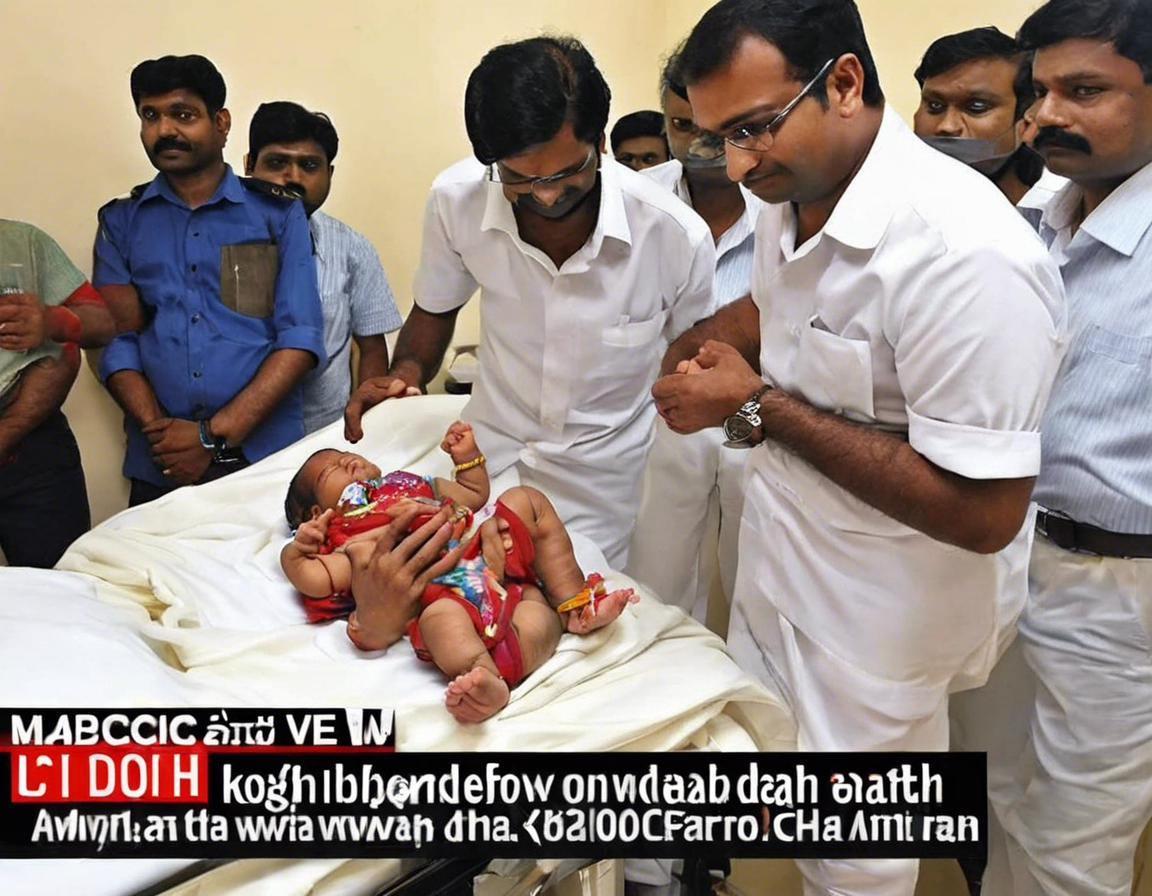In recent news, the tragic incident involving the death of a newborn baby in Kochi has sparked outrage and concern among the public. The incident, which took place in a hospital, has raised important questions regarding the healthcare system, medical negligence, and the welfare of newborns in India. As we delve deeper into the details of this heartbreaking event, it is crucial to understand the various factors at play and the implications it has for the community at large.
The Incident:
The incident in question occurred at a prominent hospital in Kochi, where a newborn baby tragically lost its life shortly after birth. Reports suggest that the parents of the baby had raised concerns about the infant’s health shortly after delivery, but their pleas were allegedly ignored by the hospital staff. Despite the gravity of the situation, the medical professionals on duty reportedly failed to provide the necessary attention and care, leading to the untimely demise of the newborn.
Medical Negligence:
The case has brought the issue of medical negligence to the forefront, highlighting the critical importance of adherence to proper medical protocols and ethical standards. Negligence in healthcare settings can have devastating consequences, particularly when vulnerable individuals such as newborn babies are involved. It is essential for medical practitioners to uphold the highest standards of care and vigilance to ensure the well-being of their patients.
Importance of Neonatal Care:
Newborn babies are highly susceptible to various health complications and require specialized care and attention in the early stages of life. Adequate neonatal care is crucial for ensuring the healthy development and survival of infants, especially those born with underlying health issues or complications. The incident in Kochi underscores the significance of neonatal care and the need for healthcare facilities to prioritize the well-being of newborns.
Community Response:
The tragic death of the newborn baby has elicited a strong response from the community, with many expressing shock, grief, and anger over the incident. Calls for accountability and justice have been rampant, as individuals demand answers and assurances that such a heartbreaking event will not be repeated in the future. The incident has sparked conversations about the state of healthcare in India and the need for reforms to prevent similar tragedies from occurring.
Addressing Systemic Issues:
Beyond the immediate circumstances of the case, it is essential to address the systemic issues that may have contributed to the tragic outcome. Factors such as understaffing, inadequate training, lack of resources, and systemic inefficiencies can all play a role in compromising the quality of healthcare services. By identifying and rectifying these issues, healthcare providers can strive to deliver better care and ensure the safety of their patients.
Preventive Measures:
In light of this unfortunate incident, it is imperative for healthcare institutions to prioritize preventive measures that can help mitigate risks and safeguard patients. This includes implementing robust protocols for patient care, enhancing communication channels between medical staff and patients, conducting regular training and skill development programs for healthcare professionals, and fostering a culture of transparency and accountability within the healthcare system.
The Way Forward:
As investigations into the Kochi newborn baby death continue, it is critical for all stakeholders – including healthcare providers, regulatory bodies, policymakers, and the community – to work together to address the underlying issues and implement necessary reforms. By learning from this tragedy and taking proactive steps to improve healthcare practices, we can strive to prevent similar incidents in the future and ensure the safety and well-being of all patients, especially the most vulnerable among us.
Frequently Asked Questions (FAQs):
- What are the common causes of medical negligence in neonatal care?
-
Common causes include understaffing, lack of proper training, communication gaps, and systemic issues within healthcare institutions.
-
How can parents advocate for their newborn’s health and safety in a healthcare setting?
-
Parents can advocate for their newborn by being proactive, asking questions, seeking clarifications, and ensuring that they are informed and involved in their child’s care.
-
What role do regulatory bodies play in ensuring patient safety in healthcare settings?
-
Regulatory bodies are tasked with monitoring, evaluating, and enforcing standards of care to ensure patient safety and hold healthcare providers accountable for any lapses in quality.
-
What measures can healthcare institutions implement to improve neonatal care practices?
-
Healthcare institutions can invest in training programs, enhance communication channels, implement quality assurance measures, and prioritize patient-centered care to improve neonatal care practices.
-
How can communities support families affected by medical negligence incidents?
- Communities can offer emotional support, raise awareness about patient rights, advocate for healthcare reforms, and provide resources for families impacted by medical negligence incidents.


